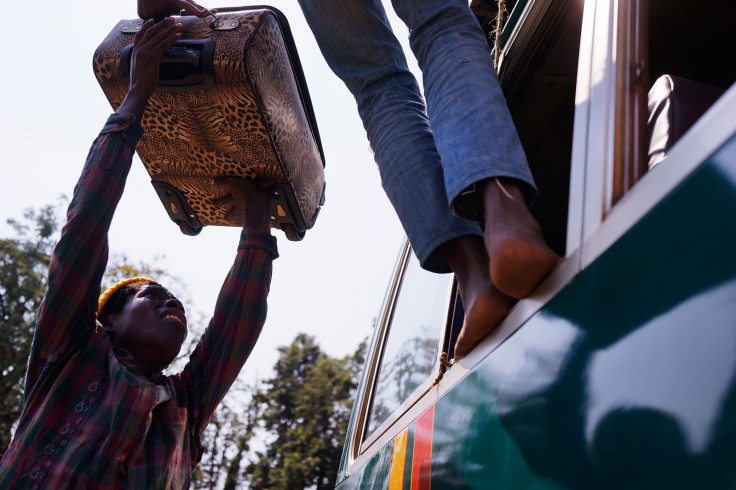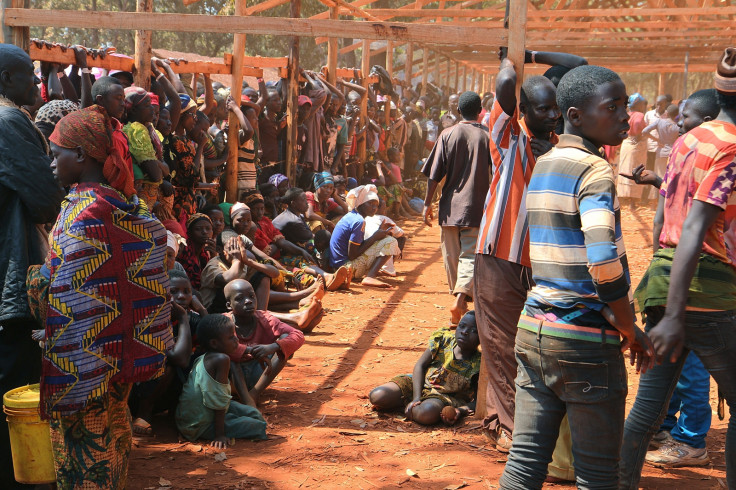Burundi will soon be one of 'Africa's biggest refugee crises', says MSF
Authorities in Tanzania are struggling with dramatic rise in the number of new Burundian refugee arrivals.

Authorities in Tanzania are struggling to cope with a dramatic increase in the number of new Burundian refugee arrivals in the last months, medical humanitarian organisation Médecins Sans Frontières/Doctors WithoutBorders (MSF) has warned.
Fleeing the crisis in Burundi, the rate of refugee arrivals has increased almost five-fold in the last four months. Up to 10,000 refugees from Burundi continue pouring into Tanzania each month, and just under 250,000 Burundian and Congolese refugees are now squeezed into Tanzania's three camps – which are now full.
"MSF is very concerned that the level of assistance currently available will not be able to cope with the predicted influx – it's estimated to hit 280,000 by the end of 2016," Gemma Gillie, a spokesperson for MSF told IBTimes UK on 16 November.
Burundi: 'one of Africa's biggest refugee crises'
"This is rapidly becoming one of Africa's biggest refugee crises," David Nash, MSF's head of mission, explained, adding that – despite warnings in May – little has been done to scale up assistance and the response to the Burundian refugee crisis remains severely underfunded.
Nduta camp, to where newly arrived refugees are being sent, is now full yet 10,000 Burundians and another 850 from Democratic Republic of Congo (DRC) arrived last month.
There have been fears that food distribution may be cut due to lack of funds. In October, the World Food Programme (WFP) announced a cut in food rations to 60% of the daily recommended nutritional intake. This measure was only narrowly avoided by a last-minute donation.
But as the number of refugee arrivals continues to grow, the risk of further cuts in the near future is a cause of concern. MSF, which has been working in Tanzania since May 2015 when the first influx of Burundian refugees to Tanzania started, has been calling for an increase in the international aid efforts to help alleviate Burundi's forgotten refugee crisis.

"The Tanzanian Government, which has kept open its borders to respond to this crisis, should not have to shoulder the responsibility alone. A rapid scale-up of assistance is required," Nash said. "The current humanitarian response – especially in terms of shelter, water and hygiene – will be unable to keep up with the huge numbers of people arriving. With the unrest in Burundi showing no signs of abating, it is crucial that international assistance to the humanitarian effort in Tanzania is rapidly stepped up."
While discussions on a fourth camp to host those still crossing the border have stalled, there are rising concerns over health risks that face refugees. Indeed, humanitarian agencies are expecting a spike in cases of mosquito-borne disease malaria ahead of the rainy season.
New arrivals at Nduta camp are temporarily housed in overcrowded communal shelters with up to 200 people, where the risk of transmission is even higher due to overcrowded and unsanitary living conditions, and stagnant water provides a breeding ground for mosquitoes.
Earlier this month, IBTimes UK reported the United Nations refugee agency (UNHCR) is having to transition plastic tents to semi-permanent shelters in Mahama, the biggest refugee camp in Rwanda to accommodate 81,565 refugees it does not expect will return home in next 12 months.
© Copyright IBTimes 2025. All rights reserved.





















